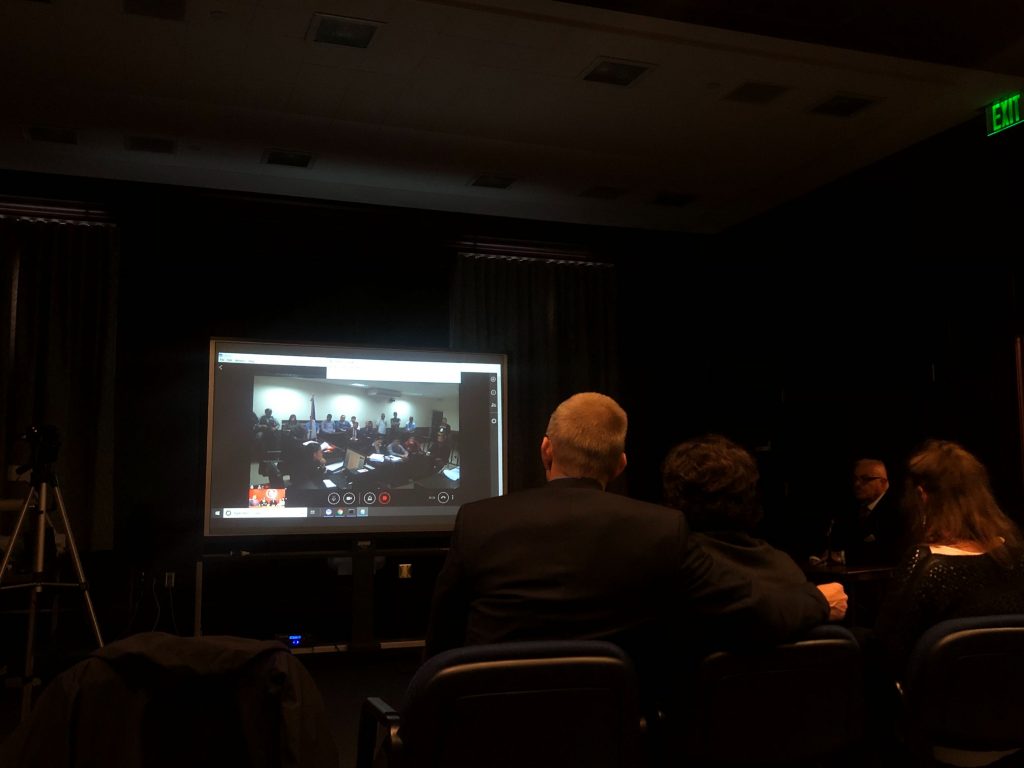
On Friday, former BU student Orlando Tercero was found guilty of murdering senior Haley Anderson in March 2018, eight weeks after the start of his Nicaraguan femicide trial.
After the trial was temporarily delayed because of a 5.3 magnitude earthquake, a Nicaraguan judge deliberated for roughly an hour and a half before handing down the verdict. Now, Tercero, 23, faces a sentence of 25 to 30 years in prison.
Anderson, 22, a nursing student from Westbury, New York, was found dead in Tercero’s residence at 23 Oak St. after Binghamton police officer Kristi Sager went to the house for a welfare check. On Oct. 12, Sager testified to the judge that she found Anderson’s body in the bedroom, a sheet partially covering her.
The same day, Tercero landed in Nicaragua, where he holds dual citizenship. After U.S. officials issued a warrant for his arrest, Tercero was detained on March 13 by Nicaraguan police and transferred to El Chipote, a prison in Managua, Nicaragua. Nicaraguan officials consistently denied requests for Tercero to be extradited to the United States.
On Friday, Tercero’s defense attorney presented one witness, a forensic psychiatrist who administered a mental evaluation for Tercero in jail. The doctor noted that Tercero tried to commit suicide twice in the hours following Anderson’s death, and was temporarily admitted to a psychiatric hospital following his arrest in Nicaragua. He also testified that Tercero experienced several epileptic incidents while incarcerated. Tercero now appears to be mentally stable and is not currently receiving therapy, according to the doctor.
During the trial, prosecutors called upon multiple former BU students who knew Anderson and Tercero. According to Anderson’s friends, Anderson and Tercero were in a romantic relationship, but after their breakup, Tercero became “obsessive.” While discussing her verdict on Friday, the judge told the court that Anderson’s friends knew Tercero had “aggressive tendencies” and that he would “yell at her indicating he wanted to be with her.”
Prosecutors also presented surveillance footage of Tercero and Anderson entering Tercero’s residence around 4 a.m. on March 8. Later video footage showed Tercero leaving the residence around 9:45 a.m. the same day. Tercero’s blood was also found in the vicinity of Anderson’s body, and officers at the crime scene found a notebook with a handwritten letter in Tercero’s bedroom, apologizing for his actions.
“I’m sorry, this is stupid, I’m sorry,” a portion of the note read. “Mommy taught me life is a momentary thing. Nothing is ours. Mommy, I’m sorry, I don’t have any words.”
Prosecutors believe Tercero attempted suicide twice before leaving his residence for John F. Kennedy International Airport in Queens, New York, where he boarded a flight.
Dr. James Terzian, a pathologist with Lourdes Hospital who performed an autopsy on Anderson’s body on the morning of March 10, 2018, also testified earlier in the trial. Terzian said he found microhemorrhages on Anderson’s face, abrasions on the inside of her lower lip and bruising around her neck with fingermarks.
“There were a lot of findings in this case,” Terzian said. “[She had] marks on her neck, including fingerprint marks, one on the right and one on the left.”
Through his examination, Terzian concluded that Anderson was manually strangled, although there was also evidence that the necklace she was wearing at the time of her death acted as a ligature and impeded her breathing.
In closing statements on Friday, the prosecutor said Tercero was conscious of what he was doing while murdering Anderson, and argued the crime deserves to be classified as femicide because of their previous relationship.
“This is a woman we’re talking about,” she said, as interpreted by a translator. “It doesn’t matter what nationality.”
Through tears, Karen Anderson, the victim’s mother, said “not a day goes by” that she does not think of her daughter.
“She was an aspiring nurse and had her whole life to look forward to,” she said. “She was, and still is, my best friend and I miss her every day. She has many friends that miss her every day and she had one of the biggest hearts for all of her friends and all people that she knew … She is unfortunately not here to advocate for herself.”
Tercero was afforded the opportunity to speak to the court, as required under Nicaraguan law, but declined to talk.
The date of his sentencing has yet to be determined, and will be negotiated by Nicaraguan and U.S. officials.
Gorden Anderson, the victim’s father, said he hopes Tercero receives the maximum sentence. In the meantime, he will think of his daughter, who he described as “a beacon, a lighthouse” for others.
“She lighted the paths of the unfortunate, the searching and the ones who needed help,” he said. “Her flame is now extinguished.”


